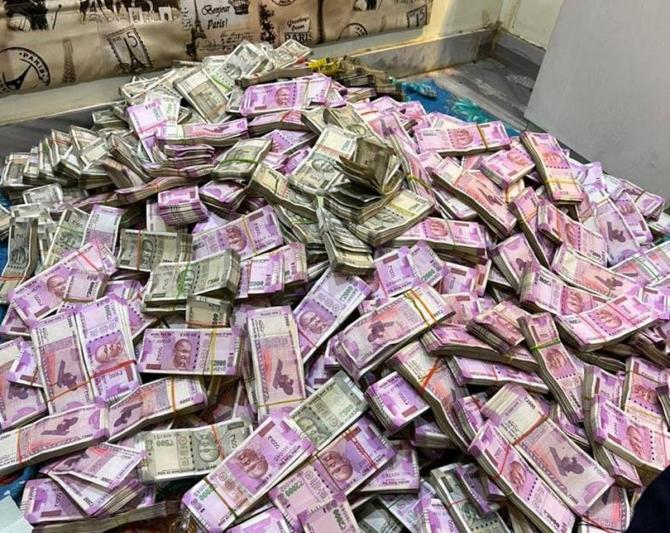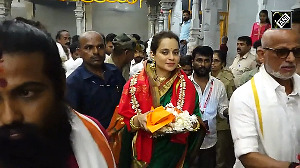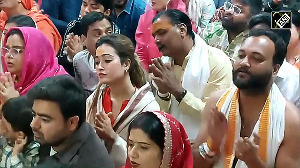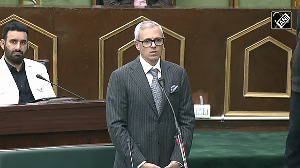The Supreme Court ruled on Monday that a provision of the Delhi Special Police Establishment (DSPE) Act, which made the Centre's approval mandatory before launching a probe in corruption cases against officers of the rank of joint secretary and above in the central government, will stand nullified since the date of its insertion on September 11, 2003.

In a unanimous verdict, a five-judge Constitution bench headed by Justice Sanjay Kishan Kaul ruled that the apex court's May 6, 2014 verdict, which had struck down section 6-A (1) of the DSPE Act, 1946, providing immunity to such officers in graft cases, will have retrospective effect.
The bench noted that Parliament amended the law and inserted section 17A in the Prevention of Corruption Act, 1988 with effect from July 26, 2018 providing for the statutory need for sanction to prosecute but without any classification of government servants.
In a way, the protection to the government officials in cases under the anti-graft law was revived by the Centre through an amendment in 2018 and this provision has continued to remain in the statute book.
The bench, also comprising Justices Sanjiv Khanna, Abhay S Oka, Vikram Nath and J K Maheshwari, delivered its verdict on the issue whether the declaration made by a Constitution bench on May 6, 2014, that section 6A of the DSPE Act being unconstitutional, can be applied retrospectively in context with Article 20 of the Constitution.
Article 20 of the Constitution provides for protection in respect of conviction for offences.
The apex court, in its May 2014 judgment, had held as invalid section 6A(1) of the Act, observing that protection in section 6A has the "propensity of shielding the corrupt".
In its judgment delivered on Monday, the bench held it is crystal clear that once a law has been declared unconstitutional, being violative of Part-III of the Constitution, then it would be held to be "void ab initio (from the very beginning)... unenforceable and non est (orders that can be ignored altogether) in view of Article 13(2) of the Constitution and its interpretation by authoritative pronouncements."
"Thus, the declaration made by the constitution bench in the case of Subramanian Swamy (on May 6, 2014) will have retrospective operation. Section 6A of the DSPE Act is held to be not in force from the date of its insertion, ie, September 11, 2003," the bench said in its 106-page verdict.
The apex court said while pronouncing its May 2014 verdict, the Constitution bench had not decided whether the declaration of section 6A(1) of the Act as violative of Article 14 (equality before law) of the Constitution would have retrospective effect or it will apply prospectively.
It noted three questions that required consideration in the matter which included -- whether section 6A of the DSPE Act is part of procedure or it introduces a conviction or sentence, whether Article 20(1) of the Constitution will have any bearing or relevance in the context of declaration of section 6A as unconstitutional.
"The declaration of section 6A of the DSPE Act as unconstitutional and violative of Article 14 of the Constitution would have a retrospective effect or would apply prospectively from the date of its declaration as unconstitutional?" read the third question.
The top court held that section 6A of the Act is a part of the procedure only in the form of a protection to senior government servants and it does not introduce any new offence nor it enhances the punishment or sentence.
The bench said, "...it can be safely concluded that Article 20(1) of the Constitution has no applicability either to the validity or invalidity of section 6A of the DSPE Act."
It noted that in 1969, the central government had issued "single directive" which was a consolidated set of instructions issued to the CBI by various ministries or departments and has been amended from time to time.
The bench said the directive number 4.7(3) contained instructions regarding modalities of initiating an enquiry or registering a case against certain categories of civil servants and provided for a prior sanction of the designated authority to initiate investigation against officers of the government and public sector undertakings and nationalised banks above a certain level.
It said the validity of the Single Directive number 4.7(3) was considered by the apex court which had in December 1997 said such directive could not be held to be valid and struck it down.
The bench noted the requirement of sanction similar to the single directive number 4.7(3) was introduced by way of an Ordinance with effect from August 25, 1998, and the same lasted till October 27, 1998, when it lapsed.
It said in 2003, section 6A, which was "akin" to single directive number 4.7(3), was inserted in the DSPE Act with effect from September 11, 2003.
"From the above, we notice that there are small windows of couple of years on two occasions when there was no such protection available, otherwise, right from 1969 the protection regarding sanction before prosecution has remained in force and continues as such even now," the bench said.
The bench noted that sub-article (1) of Article 20 of the Constitution consists of two parts and the first part prohibits any law that prescribes judicial punishment for violation of law with retrospective effect.
"The right under first part of sub-article (1) to Article 20 of the Constitution is a very valuable right, which must be safeguarded and protected by the courts as it is a constitutional mandate," it said.
The bench said it has not delved into other issues and arguments not germane to the reference order and the matters may be placed before the appropriate bench to be heard and decided on merits.
The matter was referred to a larger bench by a two-judge bench of the Supreme Court in 2016.
"The provisions of section 6A(1) do indicate that for officers of the level of joint secretary and above a kind of immunity has been provided for. Whether there can be a deprivation of such immunity by a retrospective operation of a judgment of the court, in the context of Article 20 of the Constitution of India, is the moot question that arises for determination in the present case," a two-judge bench had said in its March 2016 order while referring the matter to a larger bench.
The question had cropped up when the top court was dealing with an appeal filed by the CBI in 2007 against an order of the Delhi high court.
The CBI had registered an FIR in December 2004 for offences under the Prevention of Corruption Act and laid a trap in which a man, who was the chief district medical officer, was accused of accepting bribe.
The man had applied for discharge on the ground that the trap was laid without the previous approval of the central government as provided under section 6A of the DSPE Act.
The matter later went to the high court which said if the approval is accorded, then the matter shall be reinvestigated as per the prescribed procedure.











 © 2025
© 2025